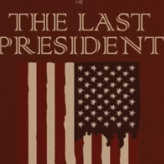Showcase: Forgotten Elephants
-
Recently Browsing 0 members
- No registered users viewing this page.
-
Topics
-
-
Popular Contributors
-
-
Latest posts...
-
115
Big C now cheaper than expat shops
Which one and what price? Siamburi's sells Typhoo one cup 100 for 119 baht , maybe cheaper online, others available -
6
Gunman in Deadly C.D.C. Shooting Fixated on Covid Vaccine
Pretty much ANY drug or medical procedure has POTENTIALLY serious side effects, and the various countries' health authorities have acknowledged that regarding COVID vaccines since the very beginning, while also correctly pointing out that the serious health risks from COVID the virus/disease FAR outweighed the very rare, uncommon actual (as opposed to fabricated) health risks from vaccination. In short, your odds were much better getting vaccinated than not. Contrary to your claim, here's the U.S. CDC publicly talking and reporting on the issue of vaccine side effects in fall 2021. 2021 Oct 16 Reactogenicity within 2 weeks after mRNA COVID-19 vaccines: Findings from the CDC v-safe surveillance system Discussion "From December 2020 through March 2021, over 4 million COVID-19 vaccine recipients provided information about their post-vaccination experience to the CDC v-safe surveillance system. During the first week following vaccination, we found that local and systemic reactions were common, and occurred more frequently after dose 2 and more frequently among mRNA-1273 [Moderna] recipients. ... Our findings from millions of v-safe responses suggest that common reactions following mRNA-based vaccines include injection site pain, fatigue, headache, myalgia, chills, fever, joint pain, injection site swelling, and nausea." https://pmc.ncbi.nlm.nih.gov/articles/PMC8519847/ But the same report above also noted what was known as the time about more serious but still very rare side effects: "A report using Vaccine Adverse Event Reporting System data has already estimated that rates of severe allergic reactions and anaphylaxis were 2.5 and 4.7 cases per million doses administered for the mRNA-1273 and BNT162b2 vaccines, respectively." At the time of this CDC report in fall 2021, U.S. COVID deaths were running about 10,000 PER WEEK! https://covid.cdc.gov/covid-data-tracker/#trends_weeklydeaths_select_00 I went with the odds, thanks very much! -
41
-
11
New Sound Bar.
Second stupid post in a row @carlyai Any reason why you are choosing to Troll the OP? -
-
98
While Trump fails, Carney outsmarts him once again
Nothing you have posted in this thread has even the barest minimum attachment to reality. Why do you continue to embarrass yourself?
-
-
Popular in The Pub









Recommended Posts
Create an account or sign in to comment
You need to be a member in order to leave a comment
Create an account
Sign up for a new account in our community. It's easy!
Register a new accountSign in
Already have an account? Sign in here.
Sign In Now